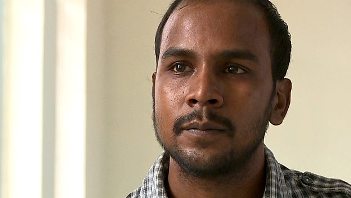The controversial documentary, India’s Daughter, is ‘difficult to watch’
India’s Daughter: The Story of Jyoti Singh aired on BBC Four last night and was truly difficult to watch. It was stomach turning, heart wrenching and would bring a tear to most eyes.
This film tells the story of Jyoti Singh, the Indian woman who was lured on to a bus and brutally gang raped in Delhi in December 2012. People worldwide are familiar with her name as her death created shockwaves in the media and led to huge protests throughout India.
Intense public interest surrounds this hour-long documentary by Storyville after it was banned in India. The Indian government also said it would try to stop the film being shown in other countries too. In response, the BBC aired the film four days earlier than scheduled in order “to enable viewers to see this incredibly powerful documentary at the earliest opportunity”. The release was originally planned to coincide with International Women’s Day this Sunday. Jyoti’s father has also spoken out saying on NDTV that everyone should see it, because it exposes what is happening.
India’s Daughter commences by interviewing Jyoti’s mother and father. They give us an insight into the personality of their 23-year-old daughter, which no newspaper reports have previously done. Her parents are clearly more modern thinking than most as they describe how they were scoffed at for celebrating the birth of a daughter (in India parents prefer to have boys, while female foetuses are often terminated).

Jyoti dreamed of being a doctor and had finished her final exams the day of her attack. Her father sold his land to pay for her medical education (which was also ludicrous to many Indians). The film paints a picture of a hard working, intelligent, kind and generous woman who disagreed with India’s sexist culture. This makes it even harder to listen as the documentary relives the rape through the testimony of Mukesh Singh (28), one of the men convicted of her rape and murder. Without emotion he describes every sickening detail, which our readers will not be subjected to.
Mukesh maintains that he did not take part in the rape, but he believes the blame lies with the victim, because she was out too late (8.30pm on her way home from a movie). “A girl is far more responsible for rape than a boy,” he said. There is very much the sense that the men raped and assaulted Jyoti to teach her a lesson. Mukesh claims, “When being raped she shouldn’t fight back, she should be silent and allow the rape”.
Only when the long list of Jyoti’s injuries is read to him does Mukesh show any discomfort; it’s the only sign of humanity that he shows. In fact, all the men who were convicted show no remorse. Their two defence lawyers concede no pity either, but also lay blame on the victim. One of the lawyers, AP Singh, shows no sign of respect for women as he confirms in the documentary that if his daughter took part in pre-marital activities, he “would put petrol on her and set her alight”. The other defence lawyer claims: “We have the best culture. In our culture, there is no place for a woman.”
This documentary makes it easy to see why the circumstances of Jyoti’s case led to national protests. India’s repression of women and its rape culture was bound to result in protest eventually. The documentary also shows disturbing footage of police brutality toward the protesters who took to the streets throughout December 2012.

Though these protests led to progressive change in India’s criminal law, the documentary clearly shows that sexism is strongly ingrained in Indian society. Children are taught from an early age that boys are above girls and this is reiterated throughout their culture. According to government figures, a woman is raped in India every 20 minutes and most of these are not reported. This is demonstrated in India’s Daughter, when the prison psychologist states that there are men in jail who have committed 200 rapes and only been punished for 12 of them.
Overall India’s Daughter is harrowing and makes for distressing viewing. Many of those interviewed seem to take the view that it is a “man’s right” to rape women. Director and producer Leslee Udwin has done an excellent job in highlighting this striking inequality within India and it is telling that the Indian government has banned it. It is eye-opening and educational, but it is not recommended for people of a sensitive disposition. It is quite depressing, but sends a strong reminder before International Women’s Day that women’s rights still need to be fought for.
Photos: BBC and Ramesh Lalwani

